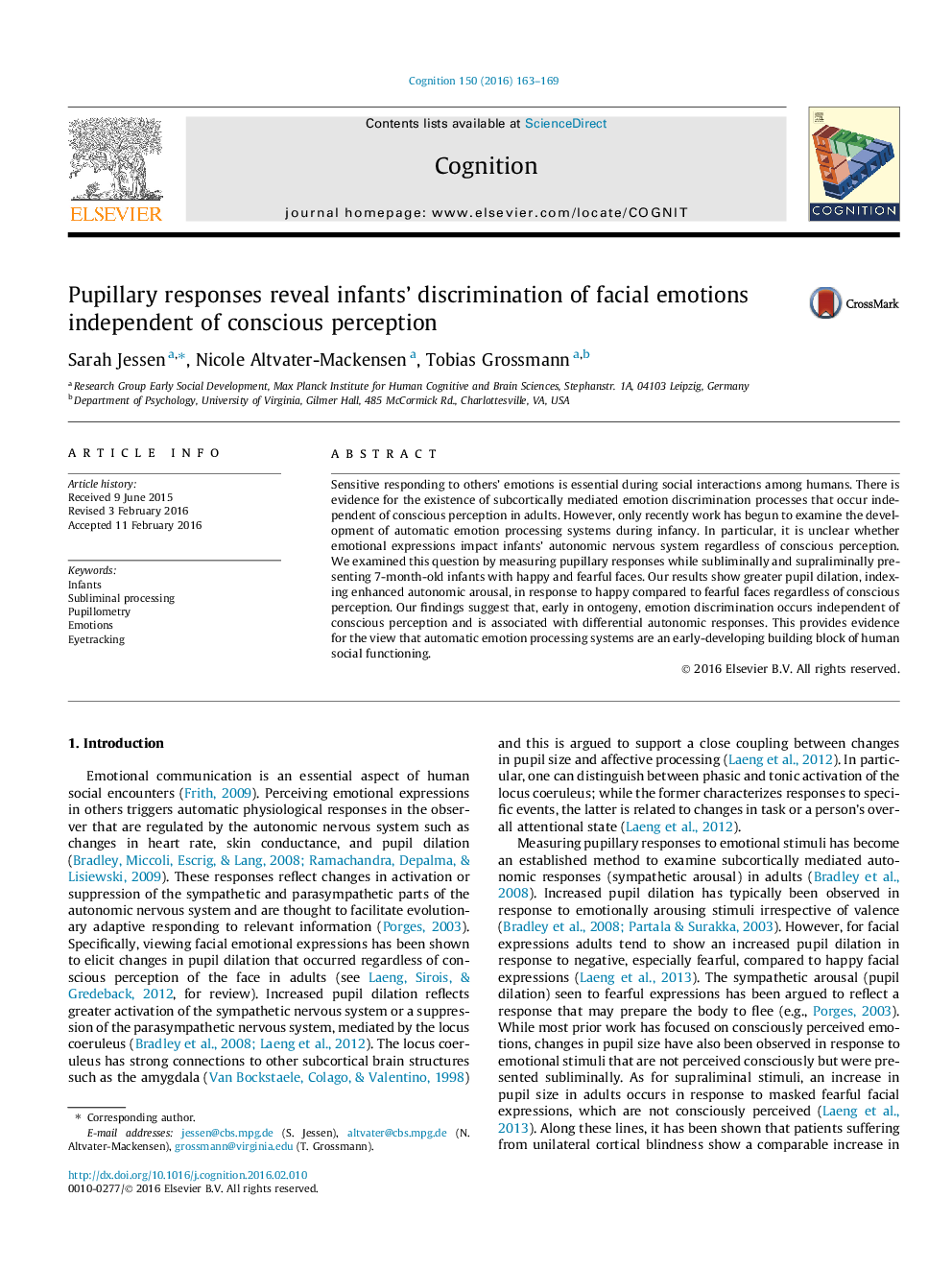| Article ID | Journal | Published Year | Pages | File Type |
|---|---|---|---|---|
| 7286247 | Cognition | 2016 | 7 Pages |
Abstract
Sensitive responding to others' emotions is essential during social interactions among humans. There is evidence for the existence of subcortically mediated emotion discrimination processes that occur independent of conscious perception in adults. However, only recently work has begun to examine the development of automatic emotion processing systems during infancy. In particular, it is unclear whether emotional expressions impact infants' autonomic nervous system regardless of conscious perception. We examined this question by measuring pupillary responses while subliminally and supraliminally presenting 7-month-old infants with happy and fearful faces. Our results show greater pupil dilation, indexing enhanced autonomic arousal, in response to happy compared to fearful faces regardless of conscious perception. Our findings suggest that, early in ontogeny, emotion discrimination occurs independent of conscious perception and is associated with differential autonomic responses. This provides evidence for the view that automatic emotion processing systems are an early-developing building block of human social functioning.
Related Topics
Life Sciences
Neuroscience
Cognitive Neuroscience
Authors
Sarah Jessen, Nicole Altvater-Mackensen, Tobias Grossmann,
